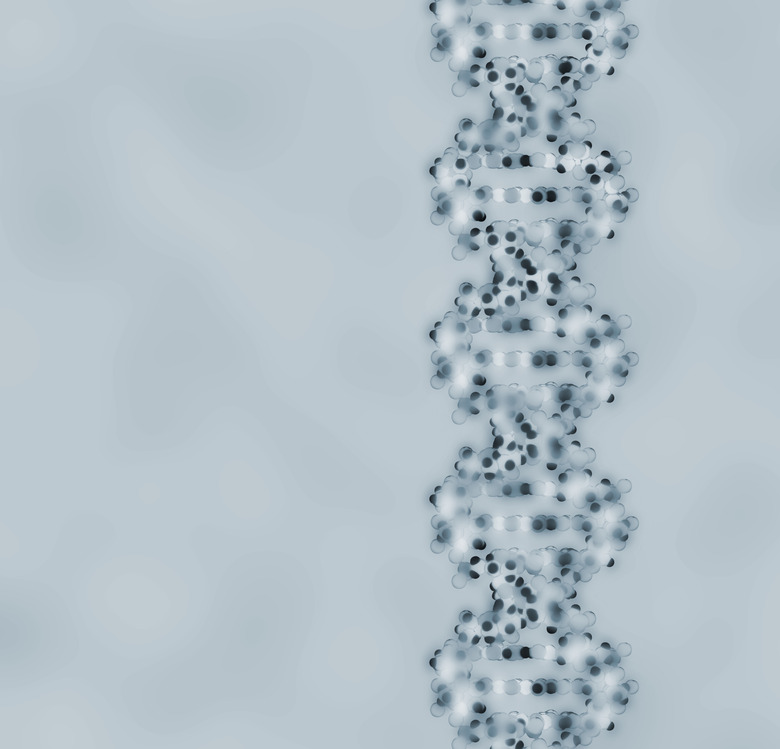Do All Humans Have A Unique Genotype & Phenotype?
If you stand in the middle of a crowd and glance around, you'll find that no matter how many people you see, no two of them are exactly alike. There are two reasons why we're all so different. All of us have inherited different genes, and all of us have been exposed to different environments. Geneticists describe how these two influences affect who we become in terms of our genotype and phenotype.
Phenotypic Traits
Phenotypic Traits
Your phenotype is the collection of visible traits that make you who you are. Your eye color, hair color and personality, for example, could all be considered part of your phenotype. Both genetic factors and environmental influences play a role in determining your phenotype, and the exact role played by each may vary from one trait to the next. Hair color, for example, is determined by genetics. Personality, by contrast, is determined by a mixture of the genes you inherited and the kinds of things you've experienced in your life such as your childhood.
Genotypic Traits
Genotypic Traits
Your genotype, by contrast, is the collection of genes you inherited from your parents. Unlike your phenotype, your genotype does not change — it's the same hand you were originally dealt and it remains the same through the course of your life. Since genotype determines some traits like hair color but only plays a partial role in determining others like personality features, there is more than one possible phenotype for a given genotype.
Uniqueness of Genotype
Uniqueness of Genotype
Unless you're an identical twin, your genotype is completely unique. There are more than 8 million possible combinations of 23 chromosome pairs, meaning there are more than 8 million possible different combinations of chromosomes you could have inherited from your parents. The true number of possible combinations is far greater still since the process that gives rise to egg and sperm cells can exchange parts of chromosomes through a process called recombination. Identical twins, however, share the exact same genotype, which is what makes them identical. Both twins have inherited the exact same genes from their parents.
Uniqueness of Phenotype
Uniqueness of Phenotype
Everyone has a unique phenotype — even identical twins. For most people, your genotype is unique, and even if you're an identical twin you may be subject to different environmental influences and experiences than your twin; as a result, your phenotype will be different. You and your twin may have different friends in school or different experiences, for example. For genetically determined traits like hair color, you will both be identical, but for other traits, such as personality and behavior, that are determined only partly by genetics, you may well be different.
References
- Genetics, A Conceptual Approach, Second Edition; Benjamin A. Pierce
- Nature Scitable: Phenotypic Range of Gene Expression: Environmental Influence
- Stanford Encyclopedia of Philosophy: The Genotype-Phenotype Distinction
- Palomar College: Recombination and Linkage
Cite This Article
MLA
Brennan, John. "Do All Humans Have A Unique Genotype & Phenotype?" sciencing.com, https://www.sciencing.com/do-all-humans-have-a-unique-genotype-phenotype-12759025/. 14 December 2013.
APA
Brennan, John. (2013, December 14). Do All Humans Have A Unique Genotype & Phenotype?. sciencing.com. Retrieved from https://www.sciencing.com/do-all-humans-have-a-unique-genotype-phenotype-12759025/
Chicago
Brennan, John. Do All Humans Have A Unique Genotype & Phenotype? last modified August 30, 2022. https://www.sciencing.com/do-all-humans-have-a-unique-genotype-phenotype-12759025/
